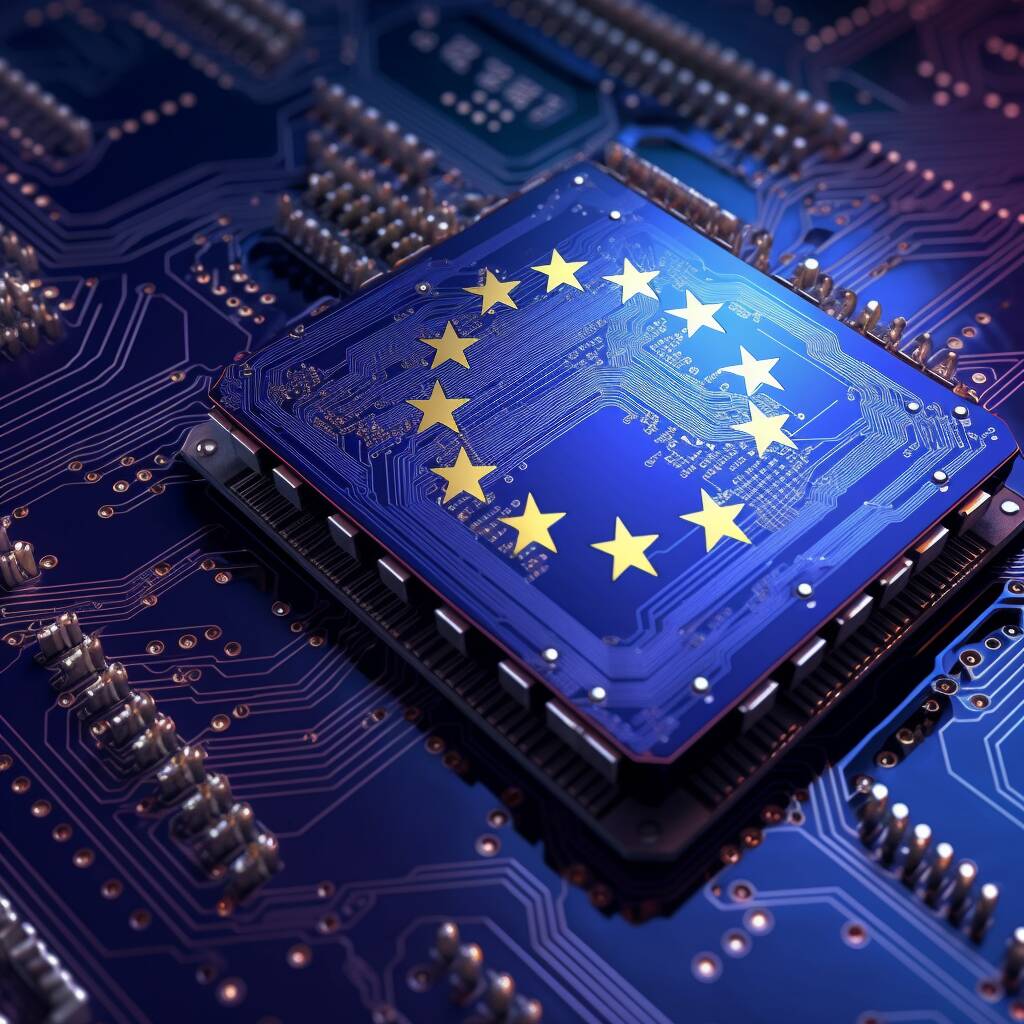EU Greenlights Billions For Microelectronics Under Chips Act

The European Commission has approved a project that aims to deliver nearly €22 billion ($23.6 billion) in funding to support microelectronics and communication technologies across the European semiconductor supply chain as part of the EU Chips Act.
Labelled as an Important Project of Common European Interest (IPCEI), this latest scheme targets research and development projects covering microelectronics and communication technologies (IPCEI ME/CT). It aims to address the entire value chain, from materials and tools through to chip designs and manufacturing processes, the EC said.
This initiative is said to involve 56 companies, including SMEs and startups, which will undertake 68 projects between them. Funding is coming in the shape of €8.1 billion ($8.7 billion) in public funding from EU member states, with the expectation that this will unlock an extra €13.7 billion ($14.7 billion) in private investments.
Around 8,700 direct jobs are expected to be created by this scheme, and "many more indirect ones," according to the EC.
Those 68 projects are part of a broader IPCEI ME/CT ecosystem involving over 30 associated participants, which includes universities, research organizations and companies across the EU, and also Norway, which isn't a member state but is linked to the EU via the European Economic Area (EEA).
The latter raises the question of why the UK is not involved if Norway is, but the British government has only recently published its own long-awaited semiconductor strategy, and in any case has a tendency to look down its nose at pan-European projects.
According to the EC, the projects will aim to make advances in multiple sectors, including communications (5G and 6G), autonomous driving, artificial intelligence and quantum computing. They will also support companies active in the energy generation and distribution sectors in becoming greener.
All 68 projects are "highly ambitious," according to the EC, as they aim to introduce major improvements in various technologies, such as sensors, high performance processors, artificial intelligence, actuators and secure communications.
"This latest IPCEI is yet another demonstration of the EU Chips Act already triggering considerable public and private investment across the European semiconductor value chain, from materials to design, from equipment to advanced packaging," EU Commissioner for Internal Market Thierry Breton said in a statement.
He added that this was an investment into Europe's technological and industrial leadership in semiconductors, as well as ensuring security of supply and economic security.
The first fruits of the various projects may come to market as early as 2025, according to the EC, and the completion of the overall project is planned for 2032. The timelines will varying depending on the project and the companies involved.
- US mulls retaliation for China blacklisting Micron without evidence of security threat
- Europe vows it won't let US and Asia treat it as a source of museum-grade chip tech
- TSMC and pals dream of €10B German chip fab
- UK PM Sunak plans to allocate just £1bn to semiconductor industry
Elsewhere in the semiconductor arena, China's chip imports are reported to be down 20 percent so far this year, according to the South China Morning Post, which blames shrinking trade with Korea, Taiwan and Japan due to the ongoing chip wars with Washington.
However, it also notes that the global semiconductor market is grappling with a cyclical downturn that has been made worse by a hike in inflation in many countries, which is likely to have had as much if not more impact than US sanctions.
Perhaps ironically, Bloomberg also reports that US chip imports fell by 16 percent in April alone, so the impact does not seem to be all one way. Imports from Taiwan increased 5 per cent this year and those from South Korea increased 7.5 percent but those from Japan fell. ®
From Chip War To Cloud War: The Next Frontier In Global Tech Competition
The global chip war, characterized by intense competition among nations and corporations for supremacy in semiconductor ... Read more
The High Stakes Of Tech Regulation: Security Risks And Market Dynamics
The influence of tech giants in the global economy continues to grow, raising crucial questions about how to balance sec... Read more
The Tyranny Of Instagram Interiors: Why It's Time To Break Free From Algorithm-Driven Aesthetics
Instagram has become a dominant force in shaping interior design trends, offering a seemingly endless stream of inspirat... Read more
The Data Crunch In AI: Strategies For Sustainability
Exploring solutions to the imminent exhaustion of internet data for AI training.As the artificial intelligence (AI) indu... Read more
Google Abandons Four-Year Effort To Remove Cookies From Chrome Browser
After four years of dedicated effort, Google has decided to abandon its plan to remove third-party cookies from its Chro... Read more
LinkedIn Embraces AI And Gamification To Drive User Engagement And Revenue
In an effort to tackle slowing revenue growth and enhance user engagement, LinkedIn is turning to artificial intelligenc... Read more

